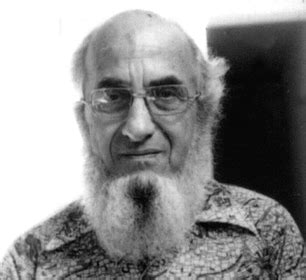A Quote by Seth Grahame-Smith
The true roll in determing to embrace or reject anything is not whether it have any evil in it but whether it have more of evil than of good. There are few things wholly evil or wholly good.
Related Quotes
Whether it's the Axis of Evil, or the evils of eating meat, it is a concept that has all but lost the impact it once had, because everyone thinks different things in this world are evil. PETA thinks what we do to animals is evil, but I think their overzealous approach is evil. Evil, in more ways than one, is comparable to the truth: definitions vary from one individual to the next.
When one has once accepted and absorbed Evil, it no longer demands the unfitness of the means. The ulterior motives with which youabsorb and assimilate Evil are not your own but those of Evil.... Evil is whatever distracts. Evil knows of the Good, but Good does not know of Evil. Knowledge of oneself is something only Evil has. One means that Evil has is the dialogue.... One cannot pay Evil in installments--and one always keeps on trying to.
When anything is in the presence of evil, but is not as yet evil, the presence of good arouses the desire of good in that thing; but the presence of evil, which makes a thing evil, takes away the desire and friendship of the good; for that which was once both good and evil has now become evil only, and the good has no friendship with evil.
In the story of the Creation we read: ". . . And behold, it was very good." But, in the passage where Moses reproves Israel, the verse says: "See, I have set before thee this day life and good, and death and evil." Where did the evil come from? Evil too is good. It is the lowest rung of perfect goodness. If you do good deeds, even evil will become good; but if you sin, evil will really become evil.
It’s true that someone will always say that good and evil don’t exist: that is a person who has never had any dealings with real evil. Good is far less convincing than evil, but it’s because their chemical structures are different. Like gold, good is never found in a pure state in nature: it therefore doesn’t seem impressive. It has the unfortunate tendency not to act; it prefers, passively, to be seen.
In the twentieth century, men -- all of us -- find themselves compelled to commit or condone evil for the sake of preventing an evil believed to be greater. And the tragedy is that we do not know whether the evil we condone will not in the end be greater than the evil we seek to avert-- or be identified with.


































